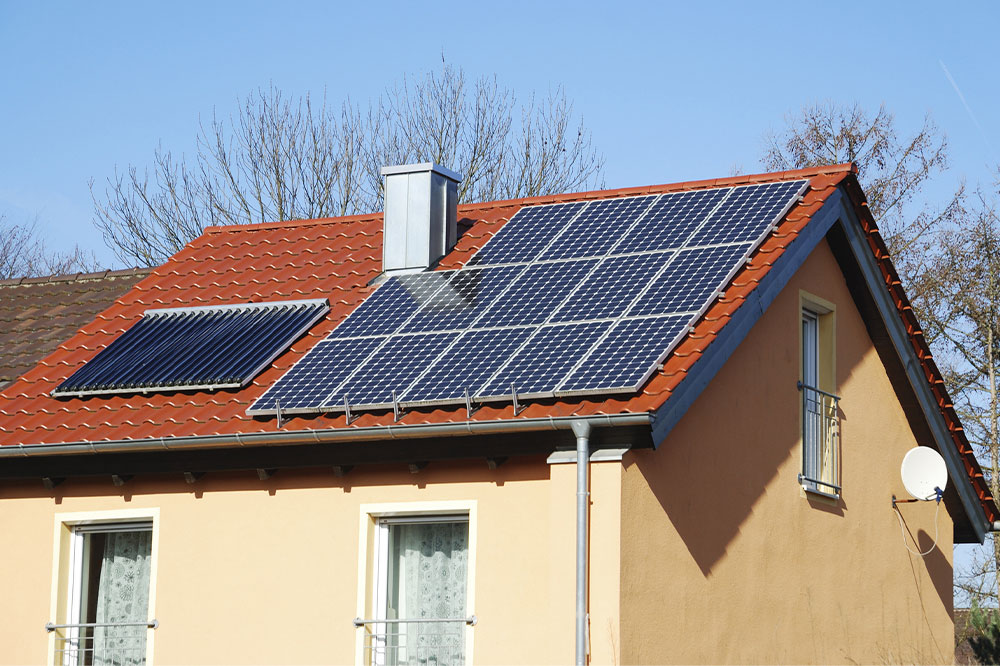
Things to know about installing solar panels at home
The unprecedented population growth and a consequent tussle for natural resources pose a serious threat to the availability of natural resources for future generations. The need of the hour is to strike a balance between satisfying the current generation’s needs and conserving resources for the future. Solar energy – a renewable energy source, helps integrate these objectives perfectly. If you are planning to install solar panels in your home, this article is your definitive guide.
Why install solar panels in your home?
No emission of greenhouse gases
According to research studies, approximately 4.8 billion metric tons of carbon dioxide were emitted in the country in 2021. Excessive greenhouse gas emission leads to global warming, causing smog, air pollution, and triggering respiratory diseases. One of the significant benefits of installing solar panels is that it does not emit greenhouse gasses, thus serving as an environment-friendly energy source. It is estimated that one residential solar panel can eliminate 3-4 tons of carbon emissions annually – equivalent to planting 100 trees a year.
Reduced electricity bills
While the regular electricity connection is facilitated through the utilization of expensive fossil fuel, solar energy harnesses sunlight and helps you save considerably on your electricity bills.
More demand for the property
Since solar power reduces electricity bills, it is more in demand among home buyers and renters than houses running on regular electricity. Hence, homeowners with solar panels installed on their terraces are at a greater advantage concerning selling or leasing out their homes.
Things to consider before installing solar panels
Installing solar panels in your home is a major, albeit beneficial decision. It requires homeowners and inhabitants to consider several factors before installation. Here are a few factors to consider if you are planning
to install solar panels in your house:
Check the available space for solar panel installation
Solar panels can take up considerable space on your property’s terrace or roof; therefore, it is essential to gauge the amount of space available in your home. You can then decide to purchase small-scale 74–100 watt peak solar panels or 250–300 watt peak solar panels for large-scale installations. You can also opt for specific panel designs based on the available space.
Panel direction plays a crucial role
Solar panels typically work best when they face the south direction and at a tilt between 30 and 45 degrees. Remember to install your solar panel exactly perpendicular to the sun to enable it to work to its fullest potential.
Determine your power usage
One of the most crucial steps before installing solar panels is to determine your solar power usage, i.e., which appliances most significantly increase your electricity bill. This evaluation can help you understand what appliances can be operated through solar power. Such an analysis can help you plan your installation better and save up on your energy expenditure, particularly if you are harnessing solar power partially at a small or medium scale.
Ensure sustainability and sustenance
The type and scale of solar panels to be installed depends largely on your budget, space, and power usage. Before installing a solar panel, it is advisable to glance through all the options available vis-à-vis your budget limit and requirements. This evaluation can help you figure out the best deal and ensure that your endeavor is sustainable for you and the environment.
Determine the type of solar panel
Solar panels are typically bifurcated into monocrystalline and polycrystalline panels. Monocrystalline panels entail only one silicon source, whereas polycrystalline ones are operated by different sources of silicon. If your home has less space for solar-panel installation or is situated in a spot receiving less sunlight, it is advisable to opt for monocrystalline solar panels, which can harness more sunlight even in damp and congested conditions. In contrast, homes with spacious roofs or terraces and good sunlight penetration lend themselves better to polycrystalline solar panels.
Hire experienced professionals for the installation
Last but not least, it is crucial to hire experienced and certified professionals who understand the end-to-end installation process and the type/design of solar panels that can suit specific homes. Shortlist solar installation companies with at least 3 years of industry experience and thorough expertise in the field. It will help if you enquire about the benefits and downsides of installing panels of a certain design or type. This will help to understand whether their plan would be feasible.
Conclusion
The best solar-panel installers are the ones who can perfectly balance your requirements with your budget and provide you with the best solar-panel solutions. The key is to state your needs and expectations clearly and carry out a thorough background check of the installation company. Personal and environmental sustainability is the motto for effectively utilizing solar energy.




